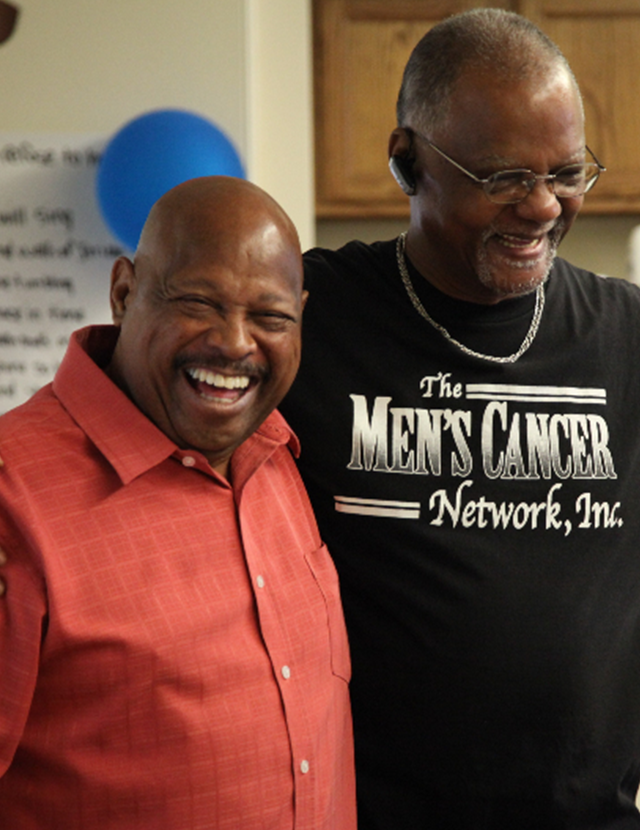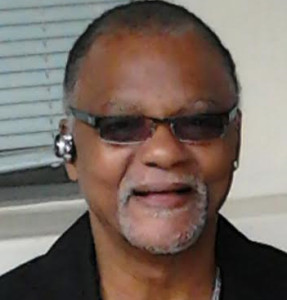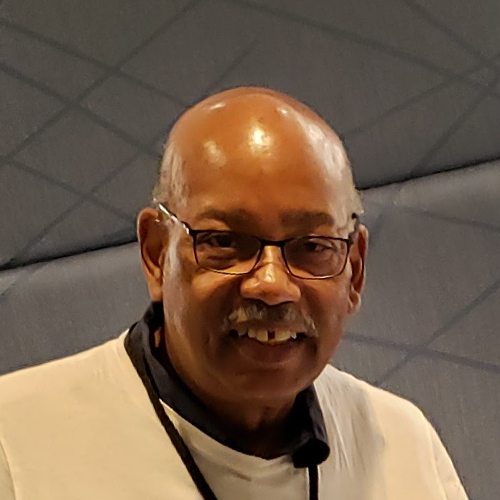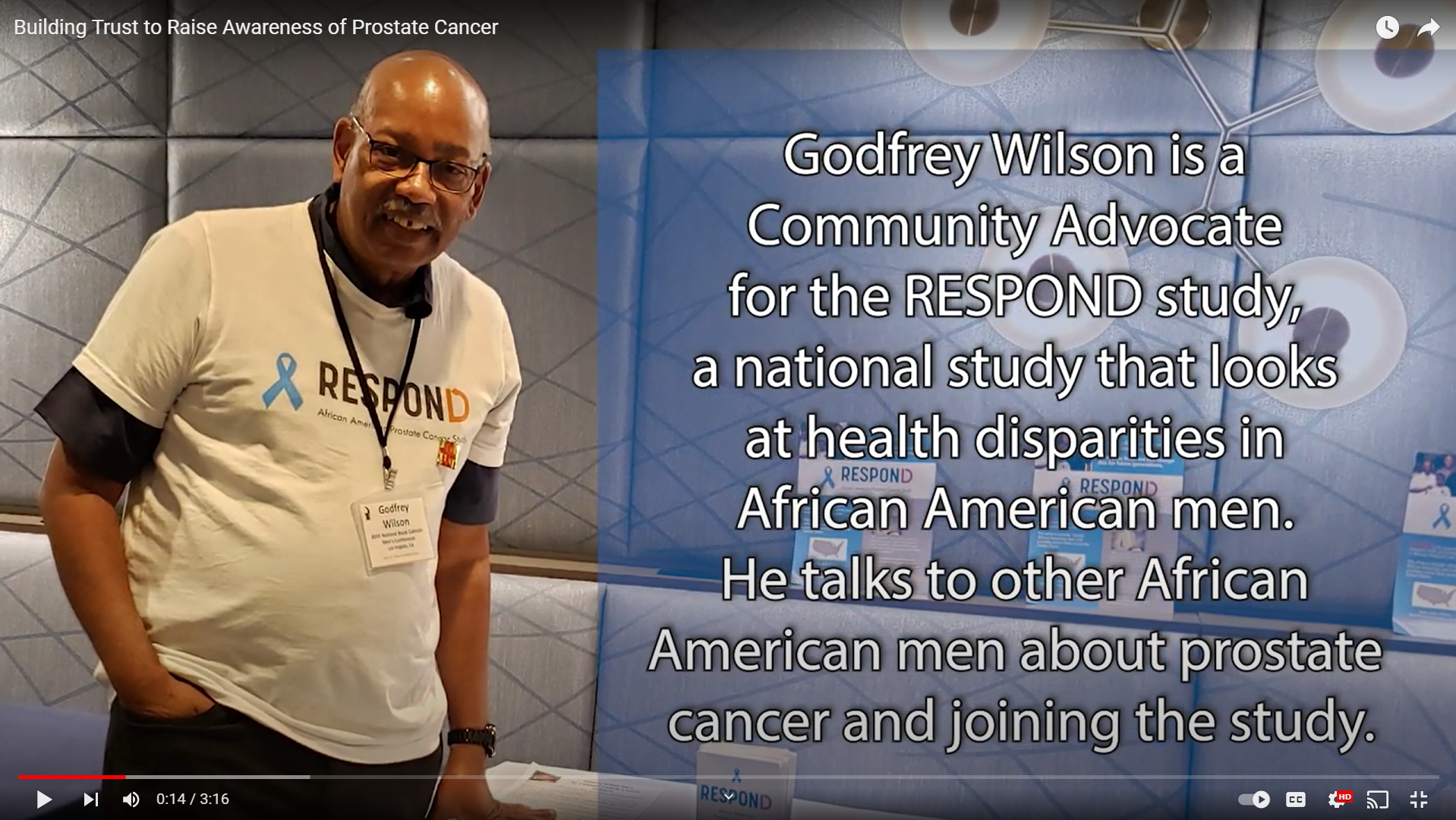National RESPOND Study Takes Closer Look at Health Disparities in Prostate Cancer for African American Men
Highlights

African American men are more likely to develop and die from prostate cancer compared to men of any other race. California’s regional cancer registries join a network of national prostate cancer researchers and experts who are studying prostate cancer to understand and reduce the health disparities that exist in African American men.
10K+ African American men were enrolled in the RESPOND study over the span of five years
20x the size of any single previous prostate cancer study in African American men
~40% of African American men in the U.S. with prostate cancer are represented in the catchment area of the RESPOND study
-
Focus Areas
Chronic Disease Prevention -
Issues
Cancer -
Expertise
Coalition & Network Building
African American men are at higher risk of developing and dying from prostate cancer in their lifetime, compared to men of any other race. The relative contributions of social and genetic factors to this inequity remains unclear.
The RESPOND Study (Research on Prostate Cancer in Men of African Ancestry: Defining the Roles of Genetics, Tumor Markers and Social Stress) is one of the largest studies ever to look at lifetime and underlying stress factors, such as systemic racism, genetic predisposition, access to healthcare and tumor characteristics that put African American men at higher risk for developing and dying from prostate cancer.
California’s regional cancer registries, which include Greater California, Los Angeles, and the Greater Bay Area, represent three of 13 national research partners supporting the study. Researchers from these registries serve as critical partners in identifying African American men in California who have been diagnosed with prostate cancer and collecting surveys and specimen data to analyze different factors that put African American men at greater risk of this disease. The regional cancer registries serve as the only data repository in the state for all reportable cancer occurrences among Californians, and their data are used to support thousands of research studies and publications on various types of cancers.

If the funding [for the Cancer Registry] went away then we would not have the opportunity to share and have the RESPOND study follow the men the way that they do to eventually come up with a resolve. There are too many underserved communities and we try and outreach to as many communities as we can.Freddie Muse, Jr.
Community Liaison, RESPOND Study
We want them to have great outcomes. We want them to live longer. We want them to celebrate birthdays with their families - that’s important to me. There is abundant life after cancer. I’m living proof of that, after having cancer twice now.Freddie Muse, Jr.
Community Liaison, RESPOND Study

Did you know?
- The RESPOND study involves 7 states and 13 cancer registries, which cover regions representing ~40% of African American men in the U.S. with prostate cancer. Men from other states were also able to volunteer to participate.
- RESPOND is more than 20 times the size of any single previous prostate cancer study involving African American men.
- At its initiation in 2019, 10,000 African American men diagnosed with prostate cancer were expected to participate in the study over the five-year period. To date, the study has been successful in surpassing this goal and has recruited over 12,000 men through participating registries.
- PHI leads the Cancer Registry of Greater California and has recruited 665 African American men who were diagnosed with prostate cancer in 2015-2018.
A community approach
African American men who are eligible for this study were recruited via mail and by telephone through the engagement of trusted community groups and community advocates, who helped to spread the word about the study.
Godfrey Wilson serves as a Community Liaison and is a member of St. Columba Catholic Church, one of the largest African American catholic churches in Oakland, CA. He works alongside the University of California, San Francisco, who is a partner on the study and works closely with the faith-based community, Brother-to-Brother, Knights of Peter Claver and other communities to help recruit African American men who have been diagnosed with prostate cancer and to be a support system to them. Mr. Wilson has worked for these programs for over 10 years.

It is difficult for a man to talk about himself. And that is one of the problems that we had…I talked to thousands of men. These men didn’t trust many people just calling them up…Godfrey Wilson
Community Liaison, RESPOND Project
Mr. Wilson serves as a trusted anchor in the community informing men about the RESPOND project and speaking with them over the phone or in person. His role is critical in helping to build trust within the African American community and to ensure that African American men with prostate cancer feel comfortable signing up to participate in the study and take part in getting a Prostate-Specific Antigen (PSA) screening test for prostate cancer.
“I have some background on informing them of some of the resources,” Mr. Wilson explained.
According to Mr. Wilson, one of the most successful ways for reaching African American men in the community has been to connect with them through the organizations. Pastors have played a critical role in helping to spread the word about the RESPOND study and supporting the work.
“There’s a belief in the church. And because they have the belief in the church it can be moved over to various studies if the pastor in that church says, ‘Okay we need this,’” explained Mr. Wilson.
Mr. Wilson lost his brother to prostate cancer and dedicates his time to making sure that other men understand prostate cancer, that they’re connected to quality health resources and are supported during their treatment journey.
In the United States, 1 in 6 African American men will be diagnosed with prostate cancer, compared to 1 in 8 White men. African American men are also 2 x as likely to die from the disease than White men.
Connecting through lived experiences
Freddie Muse, Jr. is a two-time prostate cancer survivor and has dedicated his life to helping others battle and win the fight against prostate cancer. Mr. Muse, Jr. is the Founder, CEO, and President of The Men’s Cancer Network, Inc. The Men’s Cancer Network is a non-profit, dedicated to providing critical resources, such as education, support groups, and family support to underserved men with cancer in the community. The Network operates in the seven counties of California and is connected to people throughout the nation through its online support and presence.
Mr. Muse, Jr. also works as a Community Liaison for the RESPOND study where he connects with African American men in churches, barbershops, health fairs, senior centers, libraries, and community events to talk to them about prostate cancer and recruit them for the national study.
Researchers hope that the information they gather from the RESPOND study will lead to more effective interventions for preventing the disease, earlier diagnosis, and advancements in treatment options for African American men.
“We want them to have great outcomes. We want them to live longer. We want them to celebrate birthdays with their families — that’s important to me. There is abundant life after cancer. I’m living proof of that, after having cancer twice now,” said Muse, Jr.
Watch: Building Trust to Raise Awareness of Prostate Cancer

Hear Godfrey discuss his role as a trusted anchor in the community, informing men about the RESPOND project and helping to build trust within the African American community.
About the California Cancer Registry
The California Cancer Registry (CCR) was established in 1985, through the passage of state law which mandated that all diagnosed cancers in California be reported to the Registry. Today, cancer data are collected from three regions throughout the state via the three regional registries—Greater California, Los Angeles and Greater Bay Area. Data are reported to the regional registries by hospitals or medical centers, surgery centers, laboratories, cancer treatment facilities, and small community-based healthcare practices. The CCR, through the three regional registries, supports a vast geographic territory of 58 counties and represents California’s diverse population of nearly 40 million people. Through data collection and surveillance, the Cancer Registry supports various research projects, such as the national RESPOND study. The Public Health Institute leads the Cancer Registry of Greater California (CRGC), which covers 48 of California’s 58 counties. Dr. Anshu Shrestha serves as the CRGC RESPOND principal investigator.
The RESPOND study is supported by the National Cancer Institute and the National Institute on Minority Health and Health Disparities of the National Institutes of Health. Additional funding for RESPOND is provided by the Prostate Cancer Foundation. Learn more about the RESPOND study.
Work With Us
You change the world. We do the rest. Explore fiscal sponsorship at PHI.
Support Us
Together, we can accelerate our response to public health’s most critical issues.
Find Employment
Begin your career at the Public Health Institute.
